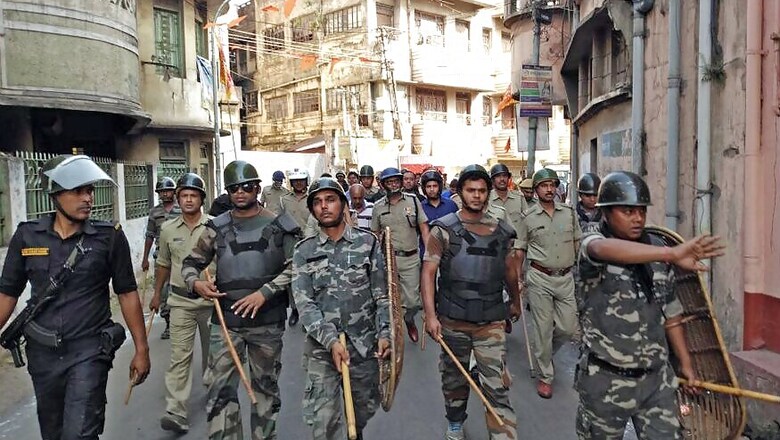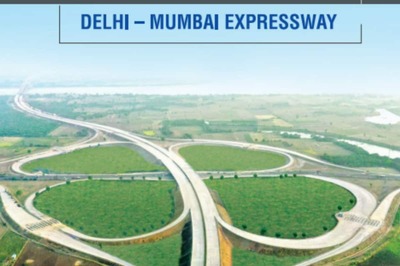
views
Kolkata: By issuing two contradictory orders within 12 hours, the West Bengal State Election Commission seems to have added to the confusion and distrust in the bloody run-up to the state’s rural polls.
Citing legal hurdles, the Commission issued a fresh order on Tuesday morning to recall its previous evening’s order for extension of nomination deadline for panchayat polls by a day. The second order was issued minutes before the earlier one was to take effect.
Ironically, the Commission was reported to have taken “extensive legal opinions” before issuing the Monday evening order, which came in the wake of a Supreme Court order disposing of a BJP petition. The saffron party had sought the extension of nomination deadline and deployment of central paramilitary troops to man the elections, alleging intimidation and violence by the Trinamool Congress dispensation.
While the Supreme Court chose not to interfere in the matter since the poll process had already been set in motion, it observed that “the West Bengal Panchayat Elections Act, 2003 has empowered the state election commissioner to pass appropriate orders in relation to any grievance… with regard to any matter relating to and arising out of the election and election process”.
The court directed the aggrieved political parties and candidates to approach the SEC who would “ensure disposal of any such grievance so made by the party concerned strictly in accordance with law forthwith.”
“We hope and trust that in order to ensure fair and free election to the panchayats, the State Election Commission shall take appropriate steps to remove the apprehensions of the petitioner and/or intending candidates and they may not be deprived of their chance to contest the panchayat elections,” the Supreme Court observed.
It was in interpretation of this order and in the wake of opposition parties turning up with hundreds of nomination papers that the Commission issued its Monday evening order to extend nomination deadline from to 3 pm on Tuesday. The order was passed nearly seven hours after the official deadline had passed on Monday.
In that order (No 982-SEC/IE-88/2017), AK Singh, the Chief Election Commissioner observed that “information has been received through complaints, deputations etc that intending candidates and proposers are being obstructed or prevented from making nomination; and... Many intending candidates could not file their nomination papers due to the above disruption.”
“Hon’ble Supreme Court of India has directed the Commission… to consider the grievance once made by any party and/or candidate as the case may be so that the intending candidates may not be deprived of their chance to contest the panchayat elections,” Singh stated in his order as justification for his deadline extension decision.
Less than 12 hours later, Singh took a U-turn to recall that order and issued a fresh order (No. 984- SEC/IE-88/2017) which stated “it appears there was no specific direction by the Hon’ble Supreme Court of India for extension of the nomination date.”
Interestingly, Singh took recourse to the same law himself which the Supreme Court had referred to as the Act which “empowered the SEC to issue appropriate orders”. Singh made two points to justify the recall.
First, citing section 46(2) of the West Bengal Panchayat Elections Act, 2003, the commissioner stated that the deadline extension order should have been made along with the same order which allowed nominations to be received at the SDO offices besides the BDO offices and not subsequently.
Secondly, the extension should have been made before the expiry of the original deadline and not after.
In effect, Singh admitted that his Monday evening order was bad in law.
A close read of the aforesaid section of the said Act gives the impression that Singh may just have made one among multiple interpretations of the law. No wonder the BJP moved both Calcutta High Court and the Supreme Court challenging the Commission and has managed to obtain an interim stay on that order from the HC.
The Trinamool Congress, however, was firm in its interpretation of the law. “The Supreme Court direction was clear. It asked the Commission to act in accordance with law and not go beyond it. Here the law is clear. The Commission cannot issue two separate orders for accepting nominations at SDO offices and extend deadline,” said Kalyan Banerjee, party MP and the advocate who appeared at Supreme Court to take on the BJP on Monday.
“Also, can you revive a person after he is dead already? The extension should have been done before the expiry of deadline,” Banerjee argued.
The dramatic developments of the past two days have, nonetheless, resulted in one discernible change in the behaviour of the opposition parties in Bengal: they have shifted the opposition’s ire from the Trinamool Congress to a constitutional body called the State Election Commission.
And that’s not good news.

















Comments
0 comment